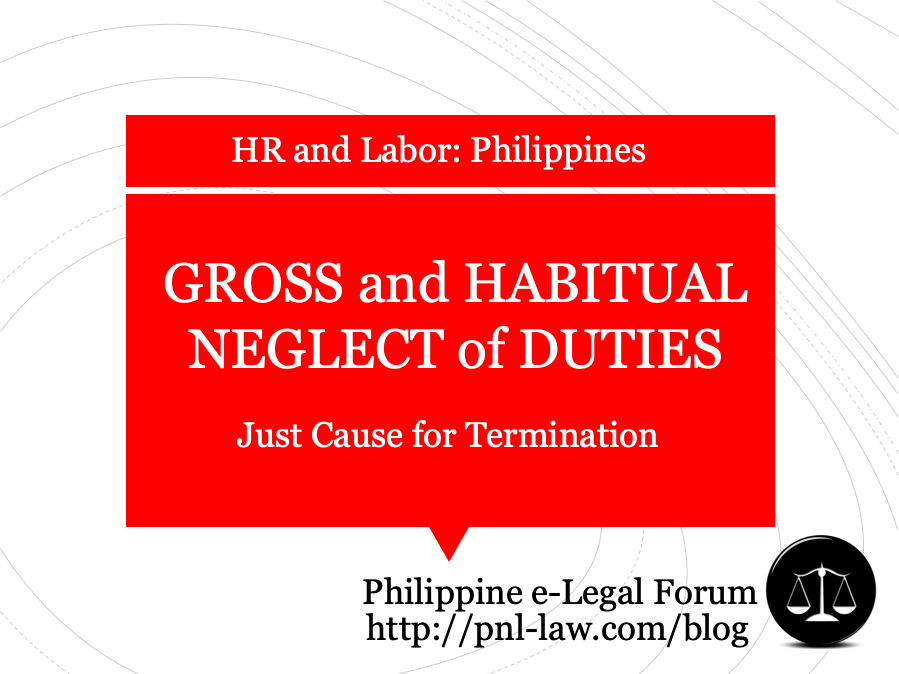Gross and habitual neglect is considered a just cause for dismissing an employee under Article 297(b) of the Labor Code. Under the Labor Code, no employee may be terminated or dismissed, except for just or authorized causes. The employer has the burden of proving, among others, that the facts support the elements of the cause used by the company to justify the employment termination. Each ground has specific elements. It is important, therefore, for management, or at least the HR staff, to be familiar with these factors.

Neglect is a ground for disciplinary action, but does not justify dismissal. Neither gross neglect nor habitual neglect would justify termination. Article 297(b) requires that the the neglect must be both gross and habitual. In other words, for neglect to be a valid ground for termination, the following must be present:
- 1. There must be neglect of duty; and
- 2. The negligence must be both gross and habitual in character.
Gross neglect is defined as the absence of that diligence that an ordinary prudent man would use in his/her own affairs. Habitual neglect, on the other hand, is the repeated failure to perform one’s duties over a period of time, depending upon the circumstances. [DO 147-15; See Framework of employment termination]
| Just causes: * 1. Serious misconduct * 2. Willful disobedience or insubordination * 3. Gross and habitual neglect of duties * 4. Fraud or willful breach of trust * 5. Loss of trust and confidence * 6. Commission of a crime or offense * 7. Analogous causes | Authorized causes: * 1. Installation of labor-saving devices * 2. Redundancy * 3. Retrenchment or downsizing * 4. Closure or Cessation of Operation * 5. Disease * Also: Due Process in termination cases |
- Twin-Notice Rule and Procedural Requirements in Employment Termination Proceedings - June 3, 2020
- When Travel Pass is Needed for Interzonal Travel during Community Quarantine - June 1, 2020
- Can Companies Compel Employees to Work during the General Community Quarantine (GCQ) and Impose Disciplinary Sanctions - May 29, 2020
